The Libyan Kid Who Could
Arsene Wenger plucked young Jehad Muntasser from obscurity and paved the way for him to become a standard-bearer in his football-mad homeland
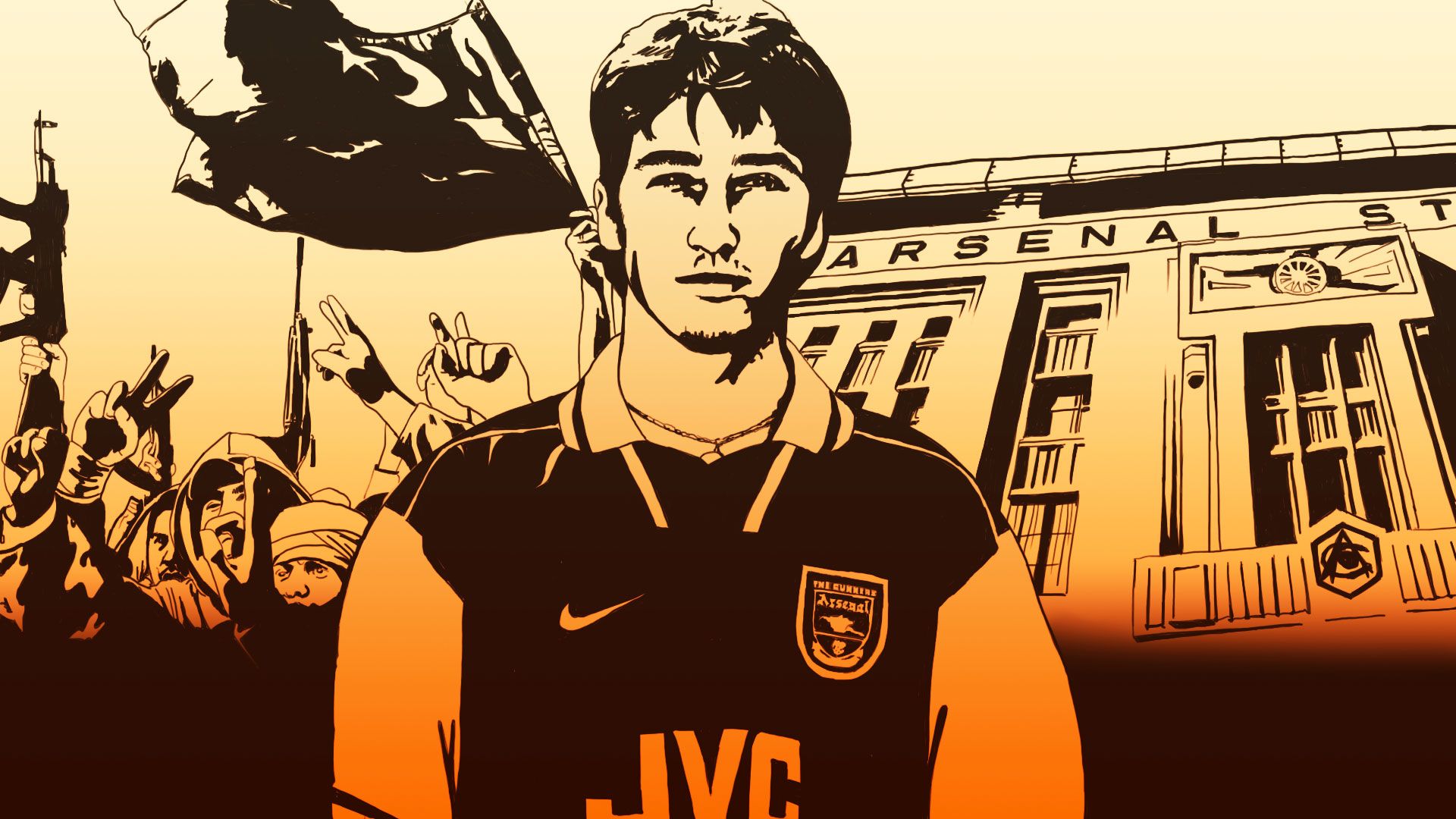
Arsene Wenger will be remembered for a lot of things now that his time at Arsenal has come to an end.
There were league titles and FA Cups. There were European finals, the state-of-the-art stadium he built from the ground up and some of the most scintillating football this country has ever seen.
He built generation after generation of Arsenal; in the early days tapping into his wide database of scouting knowledge in the expectation of uncovering the next best thing.
And it was Wenger who took a chance on Jehad Muntasser, a little known young Libyan destined to become the first Arab player of the Premier League era. The teen could not have picked a better time to arrive at the club considering Wenger would lead a star-studded squad to a league and cup double the following season.
“It was ‘97 and they won everything with Ian Wright and Dennis Bergkamp, Patrick Vieira, Emmanuel Petit. It was an unbelievable team,” Muntasser says.
Muntasser came to the notice of Wenger through Liam Brady, the former Arsenal playmaker who later worked as Head of Youth Development and Academy Director. Brady had spent time in Italy with Juventus and Inter and came across a gem in Muntasser, then housed in the Atalanta youth ranks having moved to Italy from his homeland as a child.

“I followed my dad who went from Libya to work in Italy,” he says. “I was really young, I was probably five years old, so we always lived in Italy. I grew up and played throughout all the youth academies at Atalanta. At 19 years old, Liam Brady decided to bring me to Arsenal.”
Muntasser got his chance with the first-team in a game against Birmingham City alongside the likes of Lee Dixon and David Platt.
“I was playing mainly with the reserves but I did get my breakthrough,” he says. “I got the chance to play in the first team - in the Coca-Cola Cup. Okay it was only a few minutes but you can imagine for a Libyan kid, to play for one of the most prestigious clubs in the world at 19 years old, it was amazing.”
The experience of playing on that ground and under that manager has never left him.
“Wenger was a very quiet manager,” he says. “He never talked too much. All I remember is him always being positive and calm and I can never forget his words before me coming on the pitch.
“He said: ‘Are you ready?’ I said: ‘Yes’. So he said: ‘Go and do it’. Launching a 19-year-old kid from Libya at Highbury at the time. It was pretty amazing.”
Wenger’s first double winners had a combination of British grit, brute strength and more than a smattering of continental panache.
“What I noticed was the physical ability these players had,” says Muntasser. “That’s what made the big difference. [Marc] Overmars was like a rocket. Petit was like a horse, he ran for miles. Vieira was tall and strong.
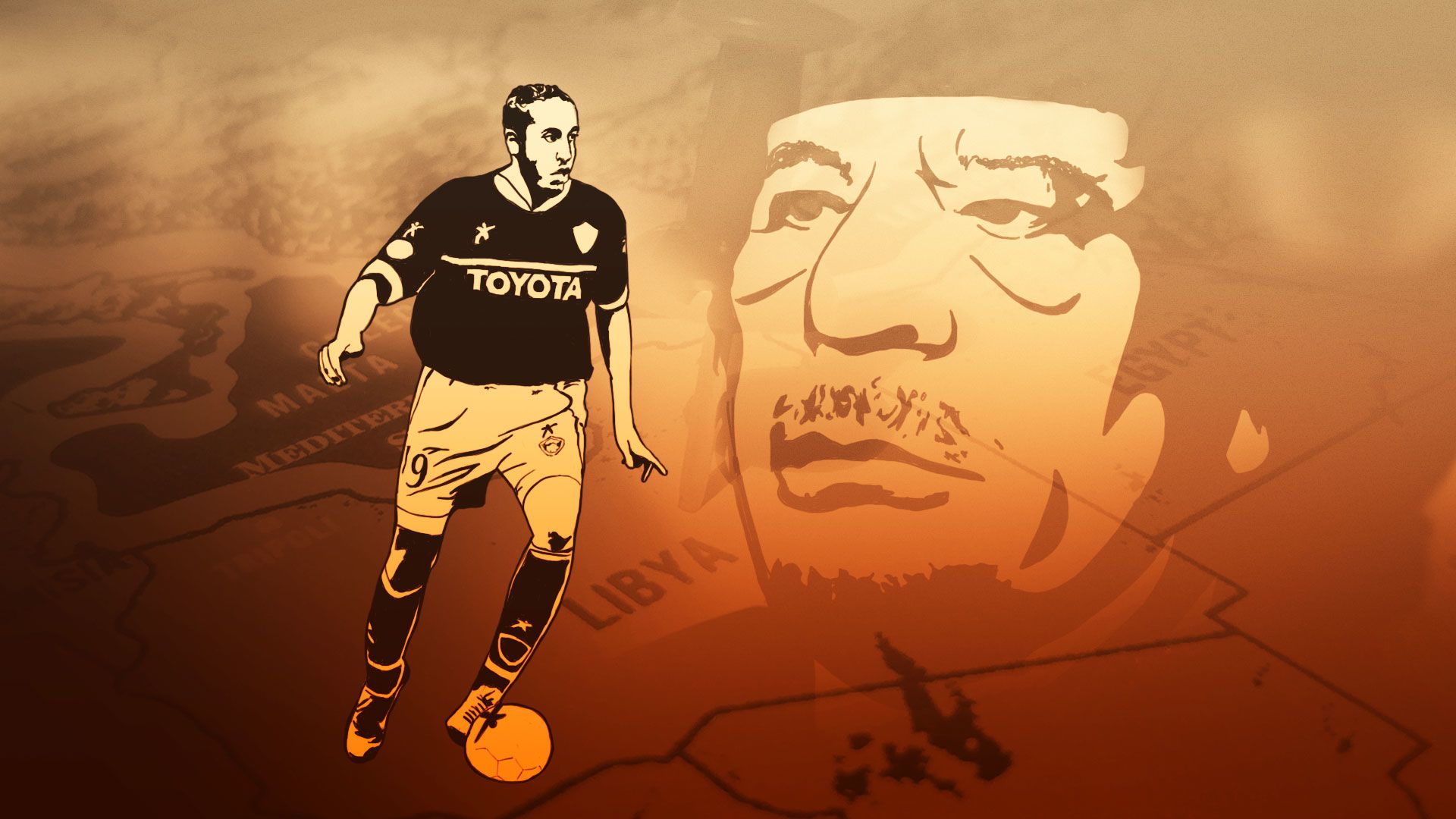
“Bergkamp was just technically out of this world. He was the player that most impressed me. He could do anything with the ball. Ian Wright, character-wise, he was just a winner. He mentored the squad in any moment and any training session.
“There was a mix of everything in that team. You had Tony Adams who was the leader. Martin Keown, the fighter.”
Muntasser might have only managed that one game for the Arsenal but it was enough to get him noticed by the national press back home, and to garner attention from more exalted quarters.
“I played [for the national team] later because of what that game did for me,” he says.
“Even though it was a few minutes, at that time, I think I was the first Arab player to play in a Premiership club. So, it was not a common thing.
“Nowadays you have Egyptians, you have everyone, but at that time there were none. So, for me I was centre of attention and then the media in Libya started writing and then the son of Gaddafi [Al-Saadi] called my family.
“He asked if I would like to come back to Libya because obviously at that time I had never thought of going back due to the political situation. In the end I decided to go and started playing internationally and I did really well with the national team. We had a good team and football was starting to become popular again.
“[General Muammar] Gaddafi himself didn’t want football at all. He had his own view about football and about society in general. At a certain point I believe the names of players was not allowed to be mentioned on TV in the game. So, they would be like No.7, No.6.
“His son came in and he brought back some passion and some money into the game, so it was the beginning of a new era for football and [even] today people recognise me and remember the team that we had as a national team. We did quite well. We qualified to play in the Africa Cup of Nations (AFCON).”
Al-Saadi Gaddafi would go on to earn a notorious reputation as a player in Serie A where he played in a game against Juventus and was suspended for failing a doping test. He was also an occasional participant for Libya's national team.
“In that particular national team he didn’t play,” he says. “He played some friendly games with the national team. He was in Italy playing for Udinese, Perugia. He tried to be considered as a normal player. But obviously it was undeniable that we all knew he was the son of the country’s leader or whatever you want to call it. It’s not a normal situation of course.
“He was in Perugia I think at a different time. I was there before him and then went on loan to other clubs. So we never really played together in Italy.”
Libya’s one and only qualification for the AFCON came in 2006, a huge achievement for a football-mad country, but an adventure destined to end in disappointment from the off.
“We were unlucky,” he says. “We entered the group with both teams that were finalists because it was Ivory Coast and Egypt. So, we were facing already the best two teams in the tournament.”
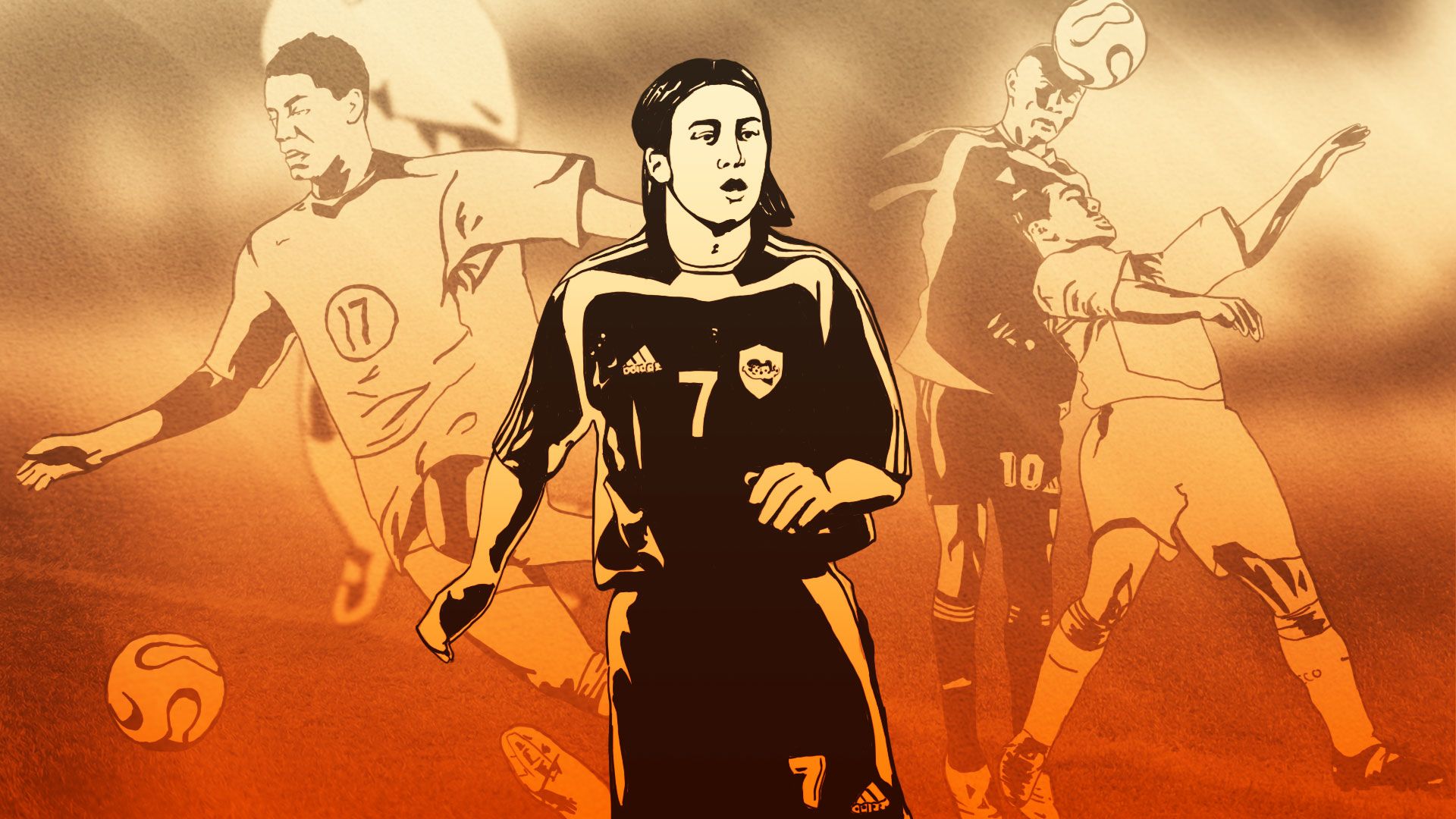
Despite the fact that Libya lacked players with European experience, there was no sense of inferiority in coming up against the likes of Yaya Toure and Didier Drogba. What let the side down, instead, was a failure to understand the benefits of an effective collective strategy.
“If you look at Libya as a team, especially in 2006, they were very technical players and players with personality, even though they weren’t playing in big leagues like I was,” he says. “They had no problem.
“The problem is that even though you try and advise, and you try and be a leader in the sense you do the right thing on the pitch and talk to your team-mates, it’s difficult when it’s a general mentality that’s not understood about everybody defending.
“Like Wenger used to ask even Bergkamp to come back in his own half. It was pretty difficult for me but in the end, I did what I could and we were happy.
“Once you play in Europe you understand that football is not just about technique. It’s not just about dribbling, there’s a lot more you have to do because in Europe what counts is to win. The teams are built to win. To defend well, to attack efficiently and I think in general in the Arab world the mentality is not understood.
“They still like to dribble and nutmeg and things like that but then, in the end, we don’t win. There’s no Arab team that has won a World Cup or a [global] international tournament, so that’s the thing with the Libyan national team. This is what I would like to do in the future is to try and change the mentality with Libyan football and to try and develop players to be more competitive.”
Libya have not been back to the AFCON since. Moreover, the country as a whole is struggling to recover from civil war and devastating NATO-led airstrikes in 2011. League play is intermittent and fans are not permitted to attend matches.
“Unfortunately, the [current] situation is not that good,” he says. “The national team has to play in Indonesia. The league has been on and off for the past five years. I would say the situation is really bad.
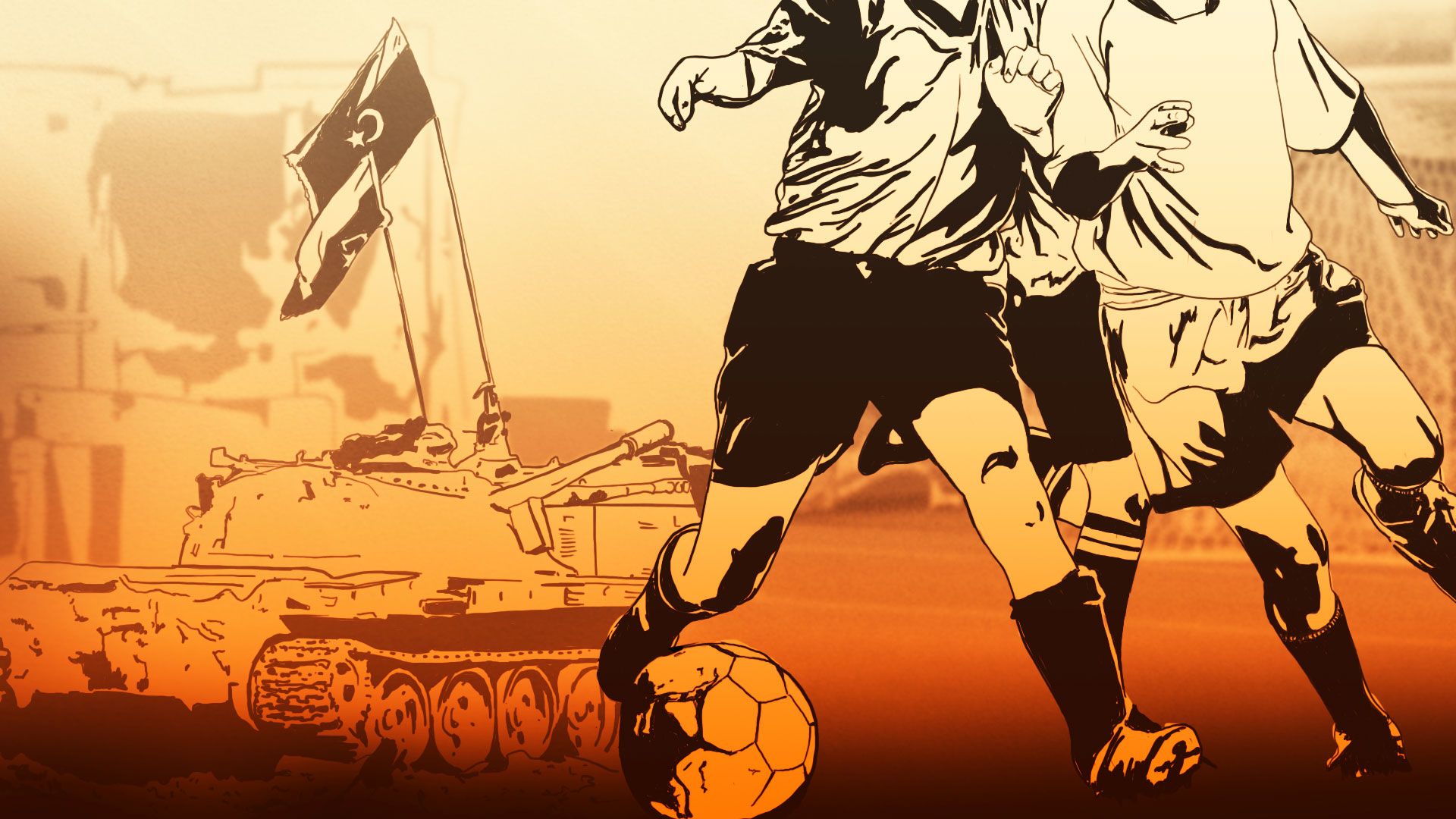
“The problem is that I don’t see any focus or investment in the youth and that’s the most saddening thing. Everybody agrees that Libya has gone through terrible years of war so it’s understandable the national team has suffered and the players have made a step backwards in terms of fitness and organisation and everything.
“Which is understandable but what is not acceptable is the fact nobody is focusing on the youth. They are the future.
“If we want to go back and be competitive like we used to be and try and compete against Egypt and Algeria, we need to start thinking about our 12-year-old kids or our 13-year-old kids and it doesn’t take much.
Jehad currently fronts a football talent show in Dubai called 'Victorious' in which he tours the Arab region in search of the next big star. He wants to use a focus on youth as well as his experiences of life at the top level in England and Italy to implement a new era in Libyan football.
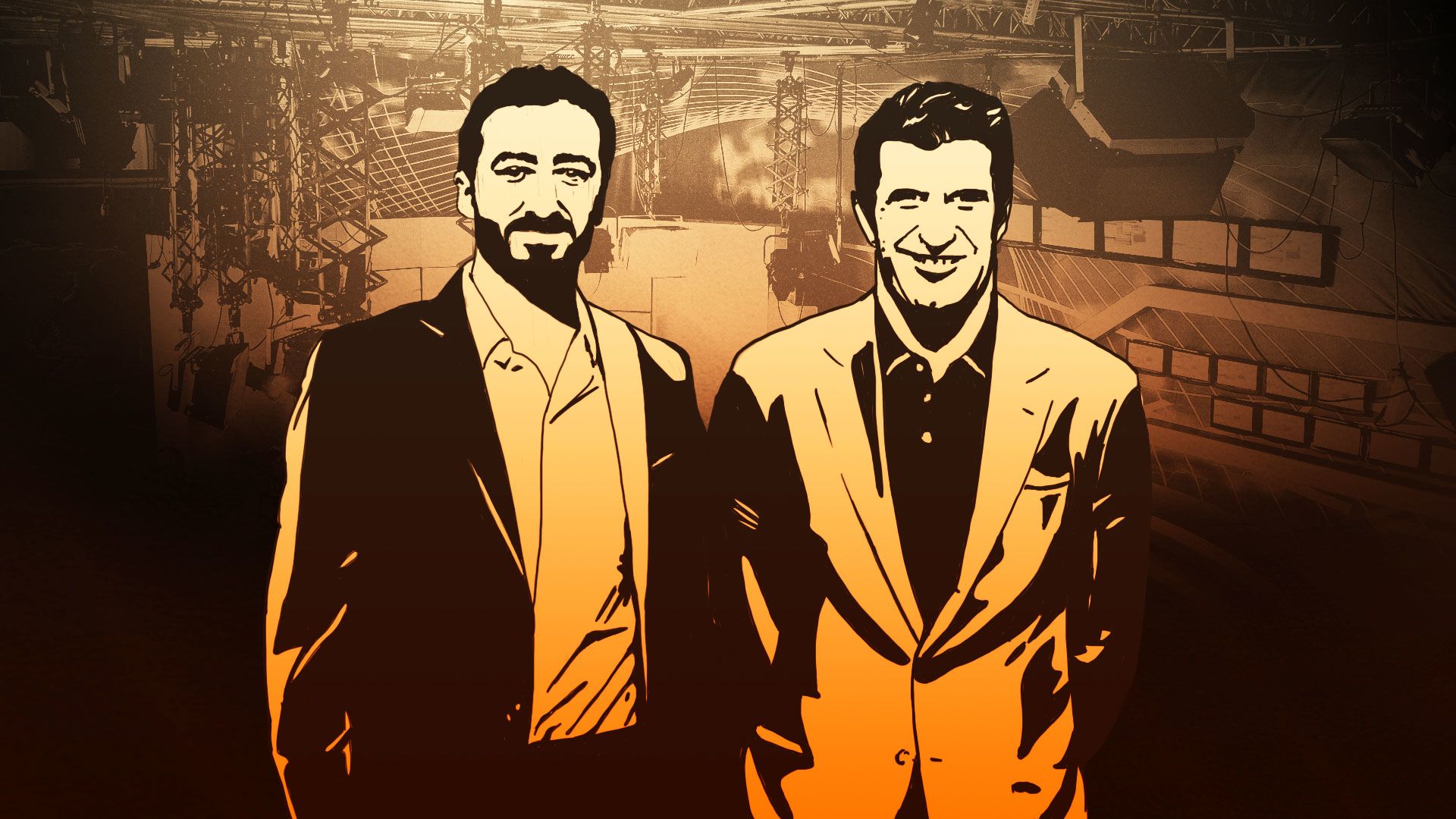
“My dream is just to become part of a new beginning of Libya’s football now,” he says. “Whether it be in the federation or as an advisor. I just want to see kids being given a chance to become football players and the ultimate goal of mine is to see Libya in the World Cup.
“That is my ultimate dream because this summer I suffered. I see Tunisia in the World Cup, I’m seeing Morocco in the World Cup, I’m seeing Egypt in the World Cup. I think Libya, after all we’ve been through, we have to start fighting back and reorganising ourselves.
“I want to be part of it because I’m not trying to be modest. I have the knowhow. I’ve played in Serie A, I’ve been an international player and I know the Arab world so I have the experience of football and I know what it takes. Not many people do have that unfortunately.
“So, it’s kind of my duty really to try and give that but even to do that there needs to be some stability in the country and some conditions that allow you to work.
“I hope at the right time I will be there. I’m hoping to do some independent tournaments soon and get some sponsors just to give some opportunity to young kids and something.
“When we used to play with the national team the fans were just unbelievable. I’ve played in Highbury. I’ve played in big stadiums but I’ve never seen crazy fans in a positive way like the Libyans.
“Football is huge in the Arab world. It just needs the right management.”

